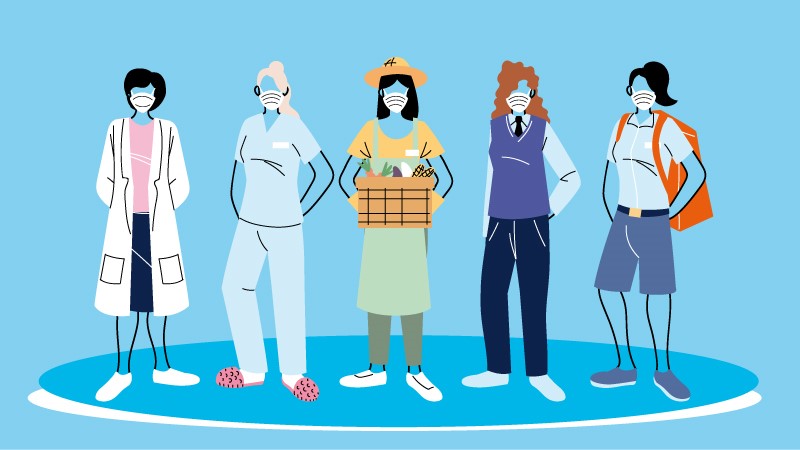by Theo de Jager, President, World Farmers’ Organisation
As the COVID19 pandemic turns everything upside-down in our economies and our societies, we experience a major paradigm shift across the globe for which there is no handbook, no pool of experience to source advise from. It does not matter anymore how good we were at our pre-COVID game, because the whole game has changed and the game since COVID19 has zeroed most of our achievements and the roadmap we have travelled up to here. What matters now is our resilience, our ability to innovate, share and support each other. Farmers have always been good at that.
While there is no one-size-fits-all solution, because food systems and production realities differ from region to region, I am profoundly convinced that if we start by protecting the weakest and most vulnerable people and communities in a system that is open, accessible without any discrimination nor concentration, the interests of all will be covered.
COVID19, and especially the lockdowns forced the world back to basics and ignited a new appreciation for the role of farmers in the society. We must leverage on that. Farmers anchor food security and the rural economies of our countries. We create wealth on a broader basis and a bigger scale than any other sectors of the global economy, but to play that role to its full potential, we need to be granted the space and right means.
When it comes to financing, farmers find themselves in a tough position. Markets are disrupted and in many countries, farmers have no other option than to waste megatons of produce, like for instance potatoes, milk and meat, and yet, in many countries farmers and their organisations donate more food to desperately hungry families than any other civil society institution, just to fight the hottest flames of the fire.
But back on the farm, the production costs have already been paid, using loans, which need to be repaid. It is not fair that farmers must alone pick up the bill for an international imperative. Many farmers will go bankrupt. Others will try to redirect their operations, redesign their value chains, and restructure their farms. All of that needs financing. It is about adapting or dying, and there is a price to both.
So far, countries have tackled the COVID outbreak in a dispersed and fragmented way, causing many disruptions in the value chains at local and international level and affecting food security, we now need an integrated and coherent approach capable to address the global challenges, caused by the pandemic.
It is more than ever important that the international organisations, starting with IFAD, FAO and the World Bank, partner up with farmers’ organisations across the globe by making available soft financing, both to cover for losses incurred under lockdown and to restructure their operations, to ensure that the food chains keep running and that we have a chance to be the foundation for economic reparation. Without such a special financing mechanism many farmers, who can and should be part of the solution, will be doomed to be added to the problem.
At WFO, we are advocating for a “Resist Now” and “Build Back Better” approach. By “Resist Now” we mean providing immediate financial support to the farmers to help them bear the weight of the losses on their investments and keep on producing, without jeopardizing further the value chains and ensuring the food security in their countries. In the meanwhile, a crisis – like the Latin origin of this word shows – also represents an opportunity to learn from the past, improve and innovate. For us, farmers, this can provide an opportunity to “Build Back Better”, repairing much of what was broken and designing fairer and more sustainable food systems.
We all want a world without hunger. We all want healthy, nutritious food. We all want a healthy planet, where the climate challenge fight has been won. We all need to reduce food losses and waste. We all need fair trade and a fairer distribution of risk and profit throughout the value chain. We all need decentralisation and diversification of financing, inputs, production, processing and distribution of food. The time has come for us to show that farmers are the real anchor of the sustainable and diverse food systems we want.
ABOUT THE AUTHOR
 Theo de Jager is the President of the World Farmers’ Organisation (WFO) since June 2017 and former President of the Southern African Confederation of Agricultural Unions (SACAU, 2013-2018) and the Pan African Farmers Union (PAFO, 2014-2017).
Theo de Jager is the President of the World Farmers’ Organisation (WFO) since June 2017 and former President of the Southern African Confederation of Agricultural Unions (SACAU, 2013-2018) and the Pan African Farmers Union (PAFO, 2014-2017).
He has farmed in South Africa since 1997 (in the South African Lowveld region) with timber and subtropical fruits (avocados, mangoes and macadamia nuts).
